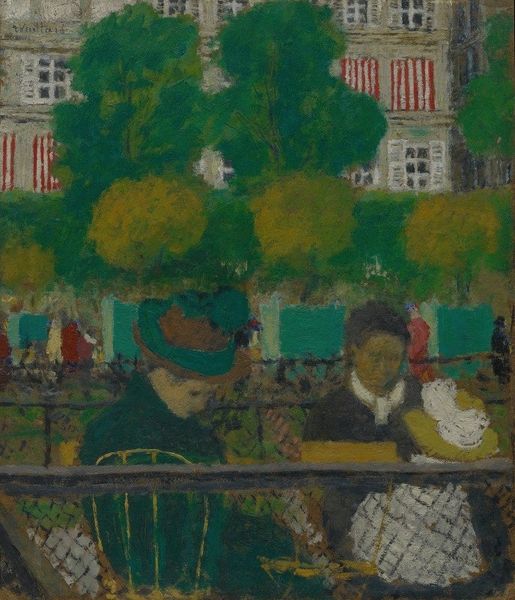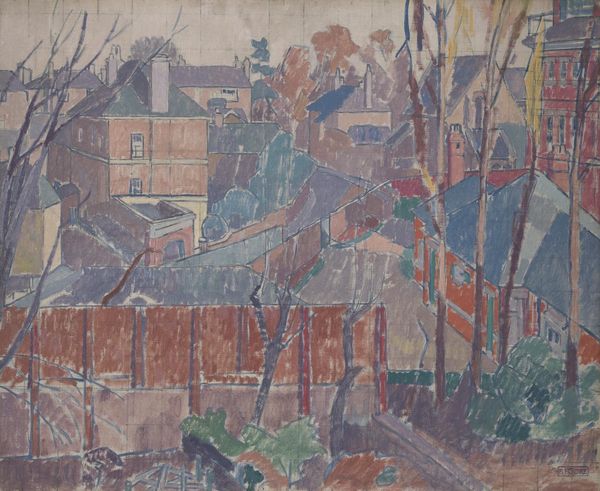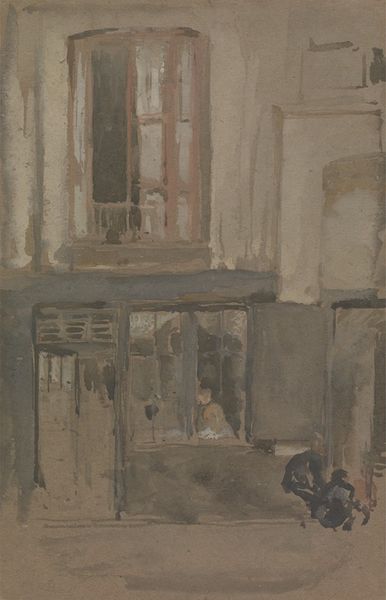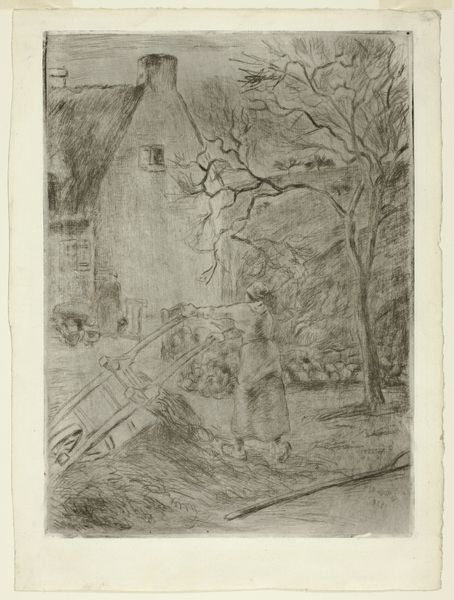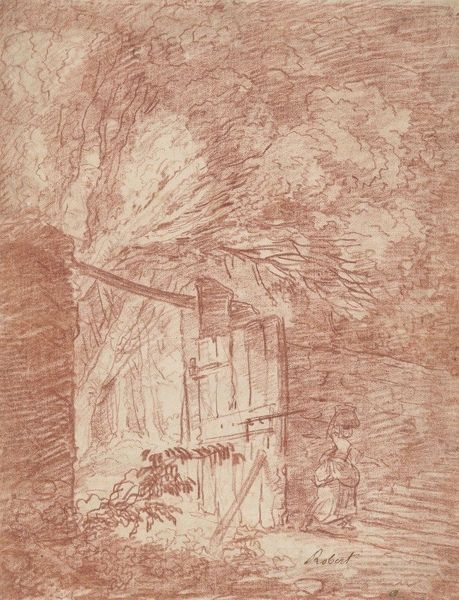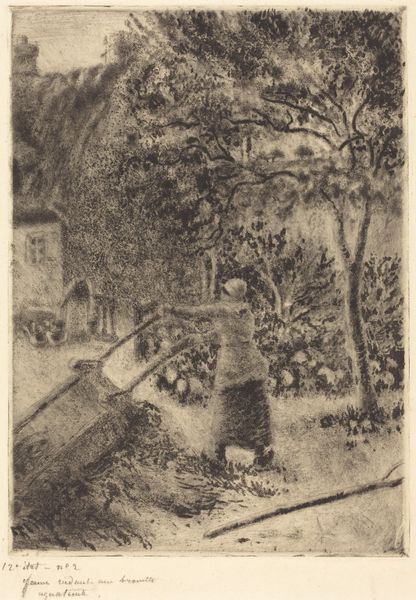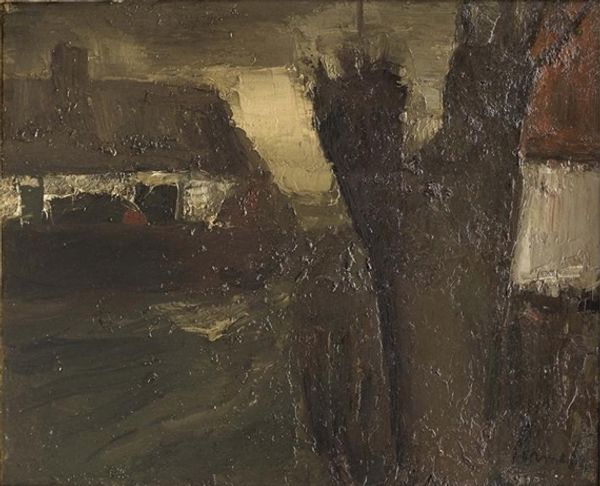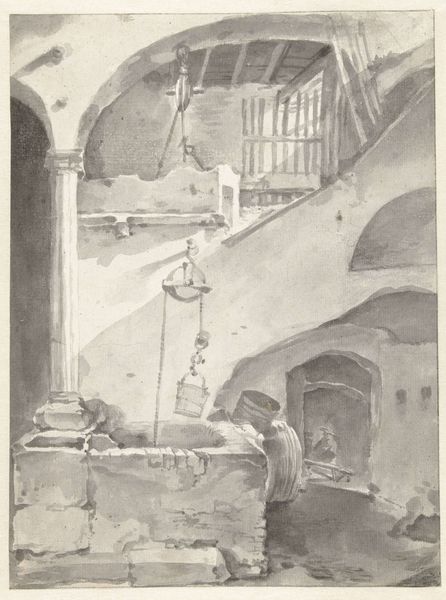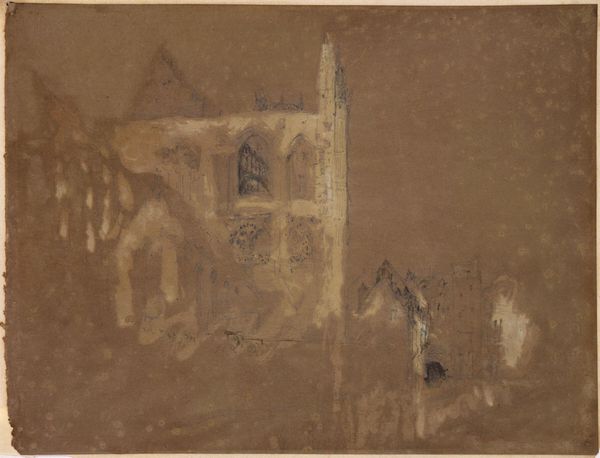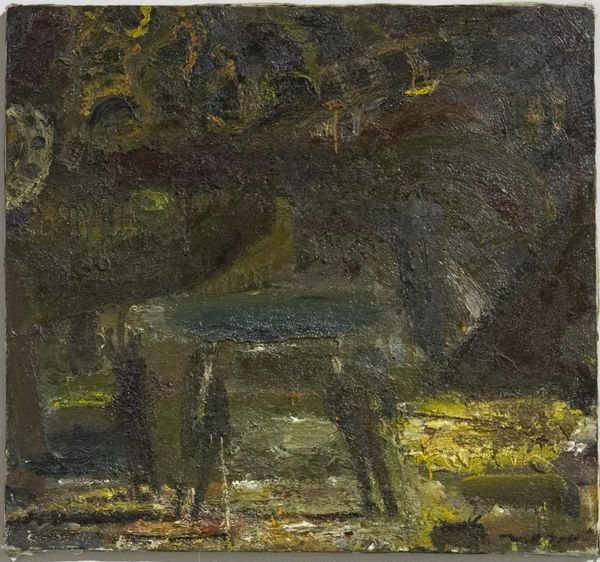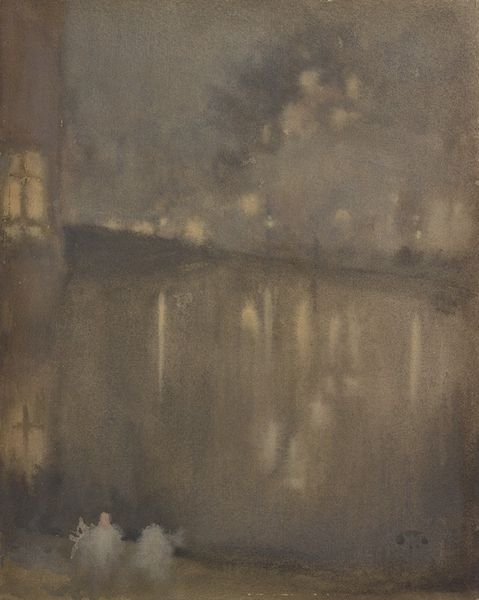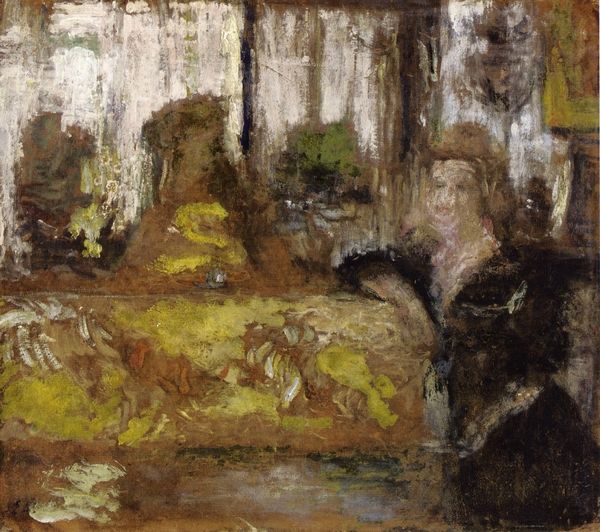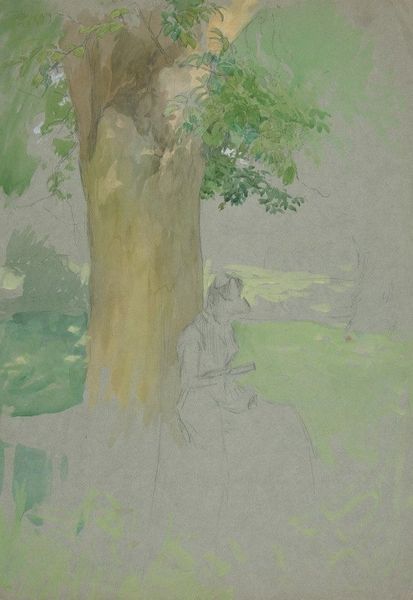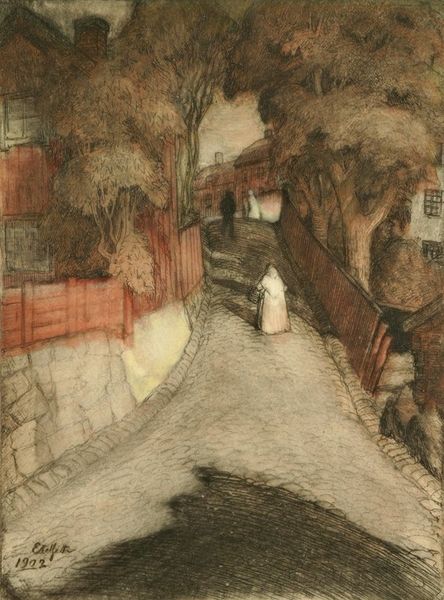
Copyright: Public domain
Édouard Vuillard captured this garden scene outside his workshop with delicate strokes and muted tones. Observe how the garden motif, a space of both cultivation and retreat, echoes through art history, from medieval tapestries to Impressionist landscapes. Here, Vuillard presents a modern iteration: not a wild Eden, but a contained, cultivated space adjacent to the creative locus of the workshop. Consider the significance of the enclosed garden—a Hortus Conclusus—often associated with purity and contemplation, a place set apart from the outside world. This concept, originating in medieval religious art, finds new expression here as a secular space, a sanctuary for artistic thought. Notice the figures, rendered almost as apparitions, blending into the garden's texture. This merging suggests a psychoanalytic reading: the garden as a projection of the inner self, a landscape of the mind where figures emerge from the subconscious. Just as Renaissance artists sought to revive classical forms, Vuillard subtly infuses this modern scene with ancient archetypes, revealing how the garden, as symbol, evolves, carrying layers of cultural memory across time.
Comments
No comments
Be the first to comment and join the conversation on the ultimate creative platform.
